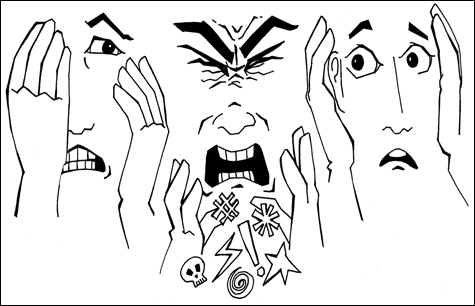The Papitto controversy reveals some ingrained truths about race and institutions

|
The fall from grace of Ralph R. Papitto was remarkable in its speed and force. Just four days after his use of the N-word became public, the prime benefactor of Rhode Island’s only law school — the 80-year-old founder of a Fortune 500 company — asked that his name be severed from the institution he helped create at Roger Williams University in Bristol.
For some, who saw the backlash as wholly out of proportion to Papitto’s cumulative man-of-action accomplishments, it was unreal. To others, particularly the throng of RWU law school students who sparked the push to remove Papitto’s name, it represented nothing less than justice.
It was a curious situation, to be sure. Papitto, the creator of Nortek, one of a relatively small number of big-deal economic success stories in Rhode Island, has donated more than $2 million to the law school at Roger Williams University. At the same time, the octogenarian’s explanation — that the ugly racial epithet “just slipped out” and that he had first heard it “on television, in rap music or something” — inspired widespread incredulity.
The use of the N-word word during a board of trustees’ meeting of a university, and one named for Rhode Island’s founder, no less, guaranteed national exposure after the Providence Journal’s Jennifer Jordan broke the dramatic story on Saturday, July 14.
The reaction swiftly broke into two sharply divided schools of thought: One, the seemingly broader view, was that Papitto and his allies on the RWU board had tried sweeping the matter under the rug while punishing the three trustees who spoke against him. A less widely subscribed view, albeit one maintained by a spokesman for the board, is that RWU was acting to correct shortcomings in institutional stewardship, and that a dissident trustee enflamed the situation, damaging the university’s reputation in the process, by going public.
Regardless, four days later, after mounting an unsuccessful defense during two July 16 appearances on talk-radio, Papitto effectively deflated the controversy when he requested that his name be removed from RWU’s law school. Media interest in the story mostly faded, with reporters and talk-show hosts gravitating to the alcohol-related death of a 17-year-old in Barrington and a charitable fund established by the owners of the Station nightclub.
In time, there will be stories charting changes in the composition of RWU’s board of trustees, and perhaps looking at how well the boards of other Rhode Island institutions reflect the communities that they serve. Yet even now, it’s clear that the Papitto controversy reflected some familiar lessons.
A bad response is worse than the offense
For a striking example of how expertly private educational institutions process their own dirty laundry, consider how it has taken Brown University a few hundred years to try to come to terms with its own considerable involvement in the slave trade. Whether this would have happened without the presence of the first black female president of an Ivy League university is another question.
Still, the response to Papitto’s use of the N-word during a May 2 RWU board meeting is far from a textbook example of crisis-management.
Mike Doyle of the RDW Group, the Providence-based public-relation company, who was hired as a spokesman for the RWU trustees, squarely puts the blame, without naming her, on trustee Dr. Barbara Roberts’s decision to go public via the ProJo. “I think the board was addressing this in a discreet manner from the get-go,” Doyle says. “There was never a matter of accepting this. One board member chose to make this a public spectacle. She acted on her own, unilaterally, in a manner that ultimately tarnished the reputation of the university.”
Doyle says the board was pursuing four steps in response to Papitto’s use of the racial epithet: 1) taking steps to no longer have him serve as board chairman; 2) adopting a conflict of interest policy; 3) revising the university’s bylaws; and 4) recruiting additional members to the board. “All of these things were being done, albeit in a private way,” he says, “rather than in a public spectacle.”
Yet the board’s efforts would have had a lot more credibility if they had been started before April, when Roger Williams was the subject of a “Notice of Concern” from the New England Association of Schools and Colleges. Among the concerns cited by the regional accreditation group was a lack of diversity on the 16-member RWU board, which was composed of 14 white men and two white women at the time. (Not coincidentally, the board was stacked with people close to Papitto.)
And as Jordan made clear in her initial story, Roger Williams opened itself to a perception that it was sugar-coating the situation when it said in a news release that Papitto’s July 9 departure from the RWU board (which he had been on for about 40 years, and chaired for the last 18) was motivated by his age and a desire to spend more time with his family. That the university has since taken this news release off its Web site indicates some level of discomfort with it.
While Papitto’s utterance of the N-word back on May 2 didn’t necessarily have to result in his departure, the subsequent move to quickly expel Roberts and two fellow critics, Sally E. Lapides and Joseph A. Caramadre, from the board — and yes, the ensuing publicity about this — made it all but inevitable.
As one experienced local public-relations professional says, “Boards are not supposed to act in harmony. They’re responsible to act in the best interests of the institution. I think the message they were sending was that retribution was essentially approved and condoned. I think that is the most problematic spin-off issue from this whole thing.”